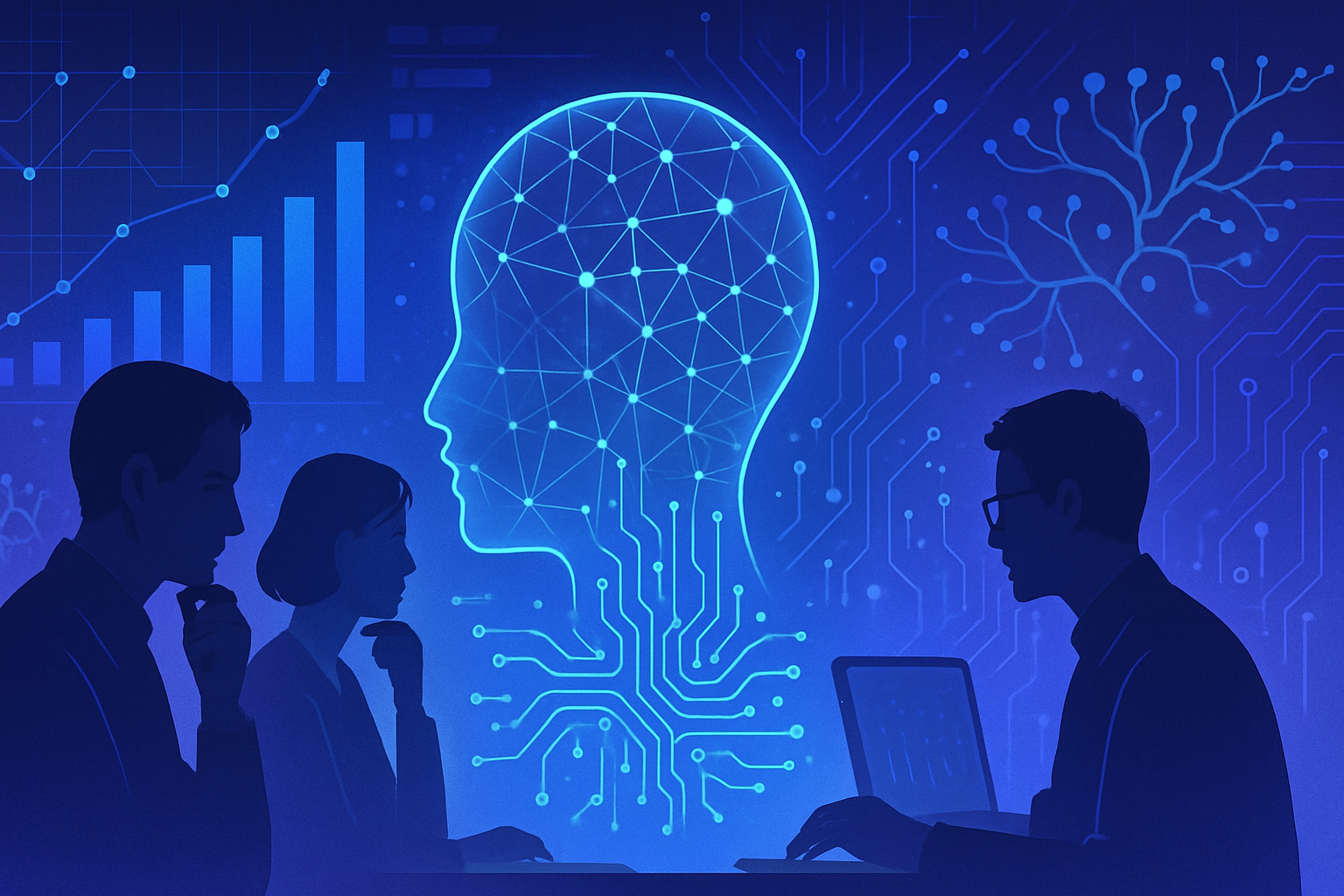Artificial intelligence is shaping our future at an unprecedented speed. The human sciences emerge as essential pillars, illuminating the nuances often overlooked by algorithms. Through the work of the Alan Turing Institute, a call for the integration of this human perspective becomes urgent. Technologies must transcend simple mechanics to embrace the richness of human cultures and emotions. This innovative approach seeks to redefine the sector while combining technological performance and human sensitivity.
A Shift Towards the Human
The ‘Doing AI Differently’ project emerges as an innovative initiative, promoted by a prestigious team including researchers from the Alan Turing Institute, the University of Edinburgh, and the AHRC-UKRI. This approach advocates for a human-centered perspective in the development of artificial intelligence. Contrary to the perception that AI outcomes are merely mathematical solutions, these researchers assert that they are rather cultural products, comparable to a novel or a work of art.
The Misunderstood Culture
The difficulty lies in the fact that AI creates these cultural artifacts without having a meaningful understanding of them. Such a situation is reminiscent of a person who has memorized a dictionary but is unable to converse. This lack of contextual understanding raises issues when nuance and context are decisive. Professor Drew Hemment, an expert in interpretation technologies, emphasizes the lack of interpretive depth in these systems.
The Homogenization Problem
The majority of AI systems around the world rely on similar designs, posing what the report calls the “homogenization problem.” This uniformity leads to repeated biases and limitations within the AI tools that surround us. By analogy, imagine a world where all bakers follow the same recipe. These repetitions lead to results lacking originality.
Lessons from Social Media
The unforeseen consequences of social media highlight the need for a thoughtful approach to AI. Initial goals, often simplistic, lead to notable societal repercussions. The ‘Doing AI Differently’ team calls for vigilance to avoid replicating past errors in the field of AI.
An Interpretive AI on the Horizon
The project proposes a model of interpretive AI, designed to operate according to how humans perceive reality. This AI would be capable of navigating ambiguity and considering multiple viewpoints, offering more nuanced solutions. New AI architectures must be explored to move beyond the current framework, with the aim of creating human-AI ensembles. This collaboration promises to combine human creativity with the computational power of AI.
Impact on Health and the Environment
In the field of health, interpretive AI could transform the patient-doctor approach. It would consider a patient’s overall experience as a narrative, rather than a simple list of symptoms. This would enhance the quality of care and strengthen trust in the system. Furthermore, for climate actions, this technology could link global climate data with local cultural realities.
An International Call to Action
A new international initiative seeks to bring together British and Canadian researchers around this mission. We are at a critical crossroads in the development of AI. Professor Hemment warns of the necessity to build interpretive capacities from the outset. Time is running out for this essential evolution.
Security at the Forefront
For partners like the Lloyd’s Register Foundation, security is at the heart of concerns. Jan Przydatek, Director of Technologies, states that the goal is to ensure that future AI systems are deployed safely and reliably. This project aims not only to develop advanced technologies but also to use AI to tackle major societal challenges while amplifying the strengths of our humanity.
To enrich this exploration, events such as the AI & Big Data Expo and specific initiatives on health are to be followed.
To delve deeper into the issues of AI, the gender equality dialogue and how to link these topics to the future of artificial intelligence is essential.
Frequently Asked Questions about the Alan Turing Institute: Human Sciences, Essential for the Future of Artificial Intelligence
What is the role of the Alan Turing Institute in the development of artificial intelligence?
The Alan Turing Institute plays a crucial role in integrating research in human sciences into the development of artificial intelligence, ensuring that systems are more human and contextual.
Why is it important to include human sciences in AI?
Human sciences provide an understanding of behaviors, cultures, and nuances, thus enabling the creation of AI systems that better meet user needs and avoid biases.
How does the Alan Turing Institute envision solving the “homogenization problem” in AI systems?
By developing alternative AI architectures and emphasizing diversity of viewpoints, the institute aims to avoid reproducing the same biases and limitations across different AI tools.
What is interpretive AI, and why is it significant?
Interpretive AI is a concept aimed at creating systems that understand and process information with interpretive depth, as opposed to a strictly mathematical approach, allowing for multiple interpretations of a situation or problem.
How do the research outcomes of the Alan Turing Institute influence the real world?
The research contributes to practical solutions in areas such as health and climate action, linking global data to local realities, which allows for better tailoring of solutions to specific community needs.
What is the impact of the Alan Turing Institute on the security of future AI systems?
By highlighting the importance of security in AI development, the institute works to ensure that AI systems are reliable and safe for users, integrating ethical considerations from the outset.
How does the Alan Turing Institute collaborate with other organizations to advance AI research?
It collaborates with universities, funding bodies, and international foundations to bring researchers together around common projects, thus fostering a multidisciplinary approach to artificial intelligence.
How essential are the research efforts of the Alan Turing Institute for the future of artificial intelligence?
They aim to shape an artificial intelligence that is truly useful to people, reconciling technology and human understanding, which is crucial for addressing future challenges.






